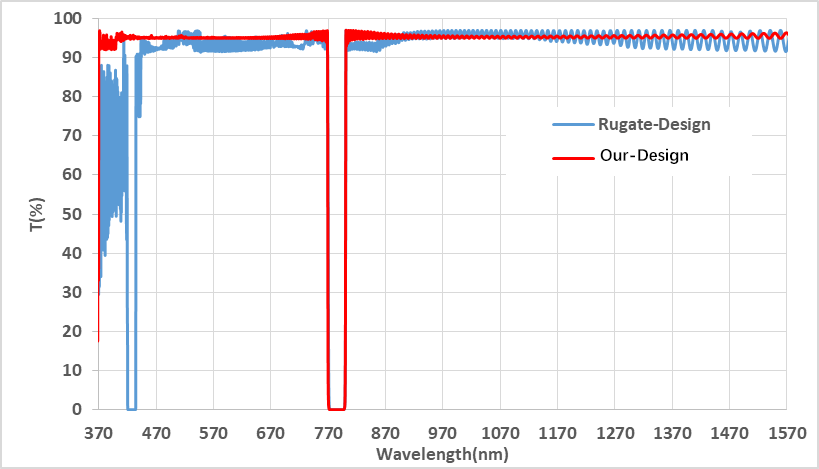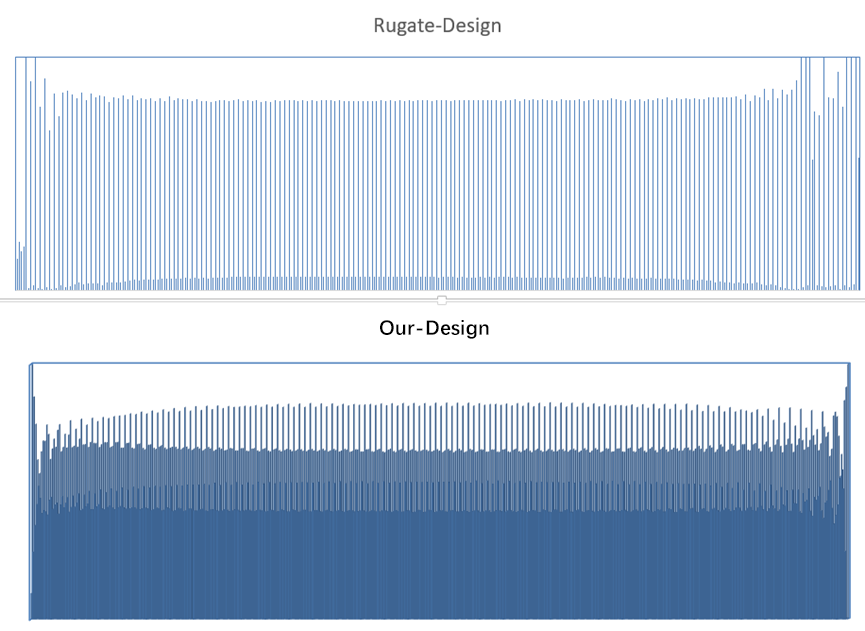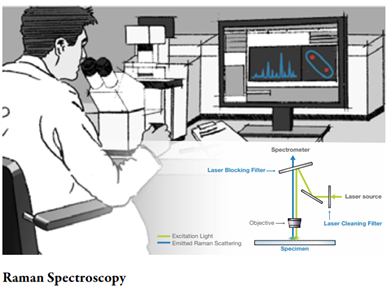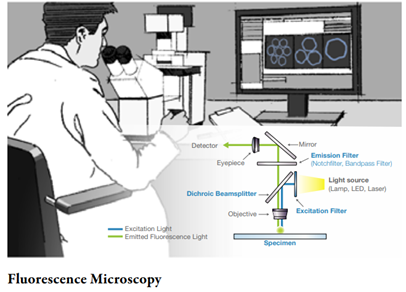

Notch Filter that breaks through the limitations of hard media Rugate optical technology
Nov,05,2023Notch Filter, called notch filter in Chinese, is also called a band-stop filter or a negative filter. Its optical characteristics are as follows: within the application band, the filter has good transmittance for most wavelengths of light. , and can effectively cut off light within a specific wavelength range (stop band). It can remove certain wavelength bands from a spectrum, and its function is exactly the opposite of a bandpass filter.
Notch filters are particularly useful in applications that require filtering out the light emitted by a laser. For example, in order to obtain a good signal-to-noise ratio in Raman spectroscopy experiments, it is crucial to suppress the pump laser. This can be achieved by placing a notch filter in the detection channel. In addition to Raman spectroscopy test systems, notch filters are frequently used in laser-based fluorescence instruments and biomedical laser systems.
However, the main disadvantage of the standard Rugate-Notch thin film notch filter is the limited passband range due to the fundamental frequency and high harmonic spectral stopbands (see the blue curve in Figure 1 below).

Figure 1 Spectral comparison between Rugate design and Our design
To obtain a wider passband than standard thin film notch filters can provide, optical engineers have had to turn to "holographic" or "Rugate" notch filters. Unfortunately, holographic filters have low reliability, passband transmittance, high cost, poor system noise performance or high system complexity, and cannot be truly industrialized. The traditional Rugate notch filter, based on sinusoidal changes in refractive index or film thickness, is usually limited by low transmittance, resulting in a limited passband range at the fundamental frequency and high harmonic spectrum stopband, especially Applications at longer wavelengths.
Omeda Optoelectronics' notch filters provide breakthroughs in Rugate optical notch filter technology, combining all the advantages of hard dielectric standard thin film notch filters with ultra-wide passband and high transmittance (see Figure 1 above blue curve).
The comparison of the design structures of Rugate-Notch and Omeda Notch is shown in Figure 2 below. In Figure 2, Rugate-Notch is based on sinusoidally varying film thickness. The greater the thickness difference, the narrower the FWHM of Rugate-Notch will be. In Figure 2, Omeda-Notch is based on a variety of sinusoidally varying film thicknesses. The thickness difference is very small, and a very narrow FWHM can be obtained. In particular, a higher transmittance and a wider transmission bandwidth can be obtained.

Figure 2 Comparison of Rugate-Notch and Our Notch design structures
Typical applications of notch filters in biomedicine, Raman analysis, etc. are shown in Figures 3 and 4.


Not only Advanced Fabrication Machine But Also Advanced Test Instrument
We have advanced coating machine and testing equipment all over the world.We regard optical coating ”advanced science“,and we know how to fabricate and test to meet client's demands.
If you want to know more about our hardware about production and testing, please click this link:
Coating Machine and Testing Instruments for Optical filter
Optical Products Inventory List
Auxcelar have rich experience in biomedical products,we do many projects with our clients and accumulated a lot of stock filter, the stock filters list can help you save a lot of money on sample cost.
 Biomedical Filter Inventory.xlsx
Biomedical Filter Inventory.xlsx
Remark:In addition to common wavelengths, we warmly welcome you to customize specified wavelength, half-width, transmittance, and cut-off depth filter ; we are especially good at dual-wavelength and multi-wavelength bandpass filter .
-------------------------------------------------------------------------------------------------------------
About Hennan Auxcelar Technologies Co.,Ltd
Auxcelar is a company that focuses on the production of advanced optical and semiconductor components. Our team consists of several PhDs who study optical components and semiconductor component processing. We have extensive experience in glass molding technology,glass polishing technology, through-silicon via and through-glass via technology, optical coating technology, optical fiber device technology, lithography technology,Nanoimprint technology, free-form surface, metasurface and diffractive optical design.
Our business involved in Lidar,consumer electronics,Biomedical,3D Sensing, AR,VR,fiber communication,Laser Projection and Display,high power laser and so on. We provide advanced optical and semicondutor components for clients to make their design become real products.
Email:omedaoptics@gmail.com
Tel/Whatsapp:+86 151 1838 3837